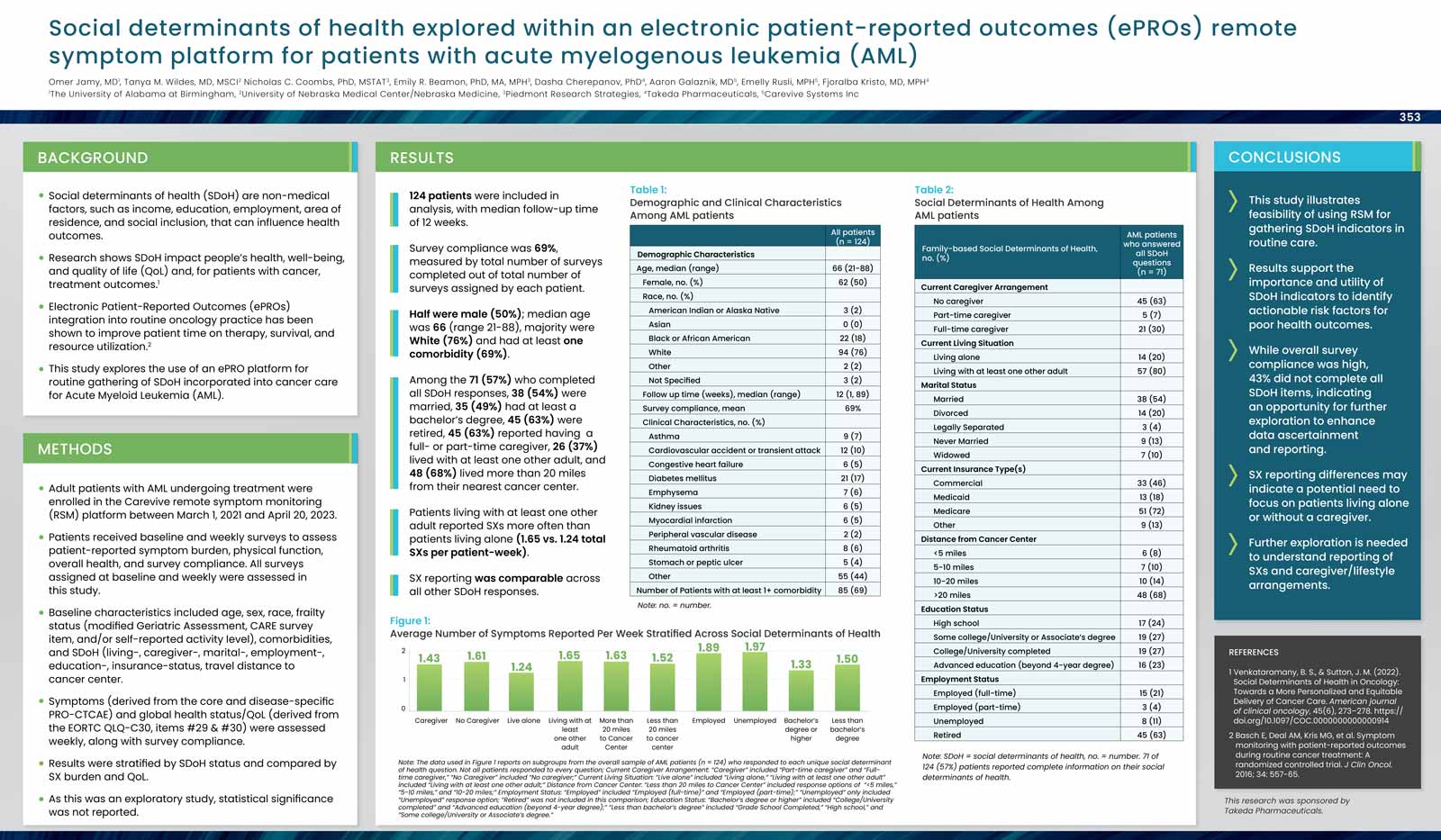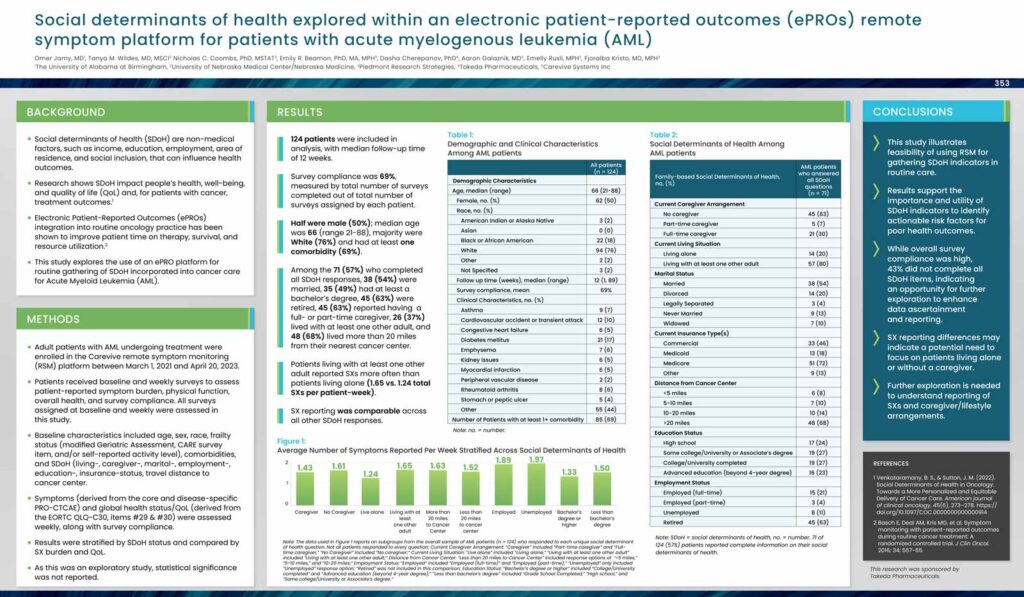
Authors: Omer Jamy, MD1, Tanya M. Wildes, MD, MSCI2Nicholas C. Coombs, PhD, MSTAT3, Emily R. Beamon, PhD, MA, MPH3, Dasha Cherepanov, PhD4, Aaron Galaznik, MD5, Emelly Rusli, MPH5, Fjoralba Kristo, MD, MPH4
1The University of Alabama at Birmingham, 2University of Nebraska Medical Center/Nebraska Medicine, 3Piedmont Research Strategies, 4 Takeda Pharmaceuticals, 5Carevive Systems Inc
Background
- Social determinants of health (SDoH) are non-medical factors, such as income, education, employment, area of residence, and social inclusion, that can influence health outcomes.
- Research shows SDoH impact people’s health, well-being, and quality of life (QoL) and, for patients with cancer, treatment outcomes.1
- Electronic Patient-Reported Outcomes (ePROs) integration into routine oncology practice has been shown to improve patient time on therapy, survival, and resource utilization.2
- This study explores the use of an ePRO platform for routine gathering of SDoH incorporated into cancer care for Acute Myeloid Leukemia (AML).
Methods
- Adult patients with AML undergoing treatment were enrolled in the Carevive remote symptom monitoring (RSM) platform between March 1, 2021 and April 20, 2023.
- Patients received baseline and weekly surveys to assess patient-reported symptom burden, physical function, overall health, and survey compliance. All surveys assigned at baseline and weekly were assessed in this study.
- Baseline characteristics included age, sex, race, frailty status (modified Geriatric Assessment, CARE survey item, and/or self-reported activity level), comorbidities, and SDoH (living-, caregiver-, marital-, employment-, education-, insurance-status, travel distance to cancer center.
- Symptoms (derived from the core and disease-specific PRO-CTCAE) and global health status/QoL (derived from the EORTC QLQ-C30, items #29 & #30) were assessed weekly, along with survey compliance.
- Results were stratified by SDoH status and compared by SX burden and QoL.
- As this was an exploratory study, statistical significance was not reported.
Conclusions
- This study illustrates feasibility of using RSM for gathering SDoH indicators in routine care.
- Results support the importance and utility of SDoH indicators to identify actionable risk factors for poor health outcomes.
- While overall survey compliance was high, 43% did not complete all SDoH items, indicating an opportunity for further exploration to enhance data ascertainment and reporting.
- SX reporting differences may indicate a potential need to focus on patients living alone or without a caregiver.
- Further exploration is needed to understand reporting of SXs and caregiver/lifestyle arrangements.
References
1 Venkataramany, B. S., & Sutton, J. M. (2022). Social Determinants of Health in Oncology: Towards a More Personalized and Equitable Delivery of Cancer Care. American journal of clinical oncology, 45(6), 273–278. https:// doi.org/10.1097/COC.0000000000000914
22 Basch E, Deal AM, Kris MG, et al. Symptom monitoring with patient-reported outcomes during routine cancer treatment: A randomized controlled trial. J Clin Oncol. 2016; 34: 557-65.

